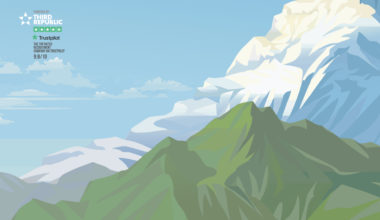The Salesforce Certified Technical Architect credential is the pinnacle certification for those who demonstrate the knowledge, skills, and capabilities to design and build high-performance technical solutions on the Salesforce Lightning Platform across all areas of domain expertise.
Salesforce has more than 50% of the world’s Certified Technical Architects working to help customers blaze their trails and become Trailblazers. But what do our Salesforce architects actually do every day? Cynthia Qiao, Senior Program Architect, Salesforce Advisory Services reveals all here.
Q: Hi Cynthia. What’s your background, and how did you come to Salesforce?
A: I was born and raised in China, and came to North America when I was in my 20s. I’ve always been interested in technology, and how it can help companies improve and succeed. Prior to joining Salesforce about four years ago, I worked as an enterprise architect for nearly 15 years. I’m now a Salesforce Certified Technical Architect (CTA) and deployed regularly on customer projects.
Q: As an architect, what do you like best about working with the Salesforce Lightning Platform?
A: In my opinion, the Salesforce Platform is very impressive, because it offers the innovation and collaboration that’s needed to create exciting projects and build trust for our customers. -When they work with a CTA, they know they’re getting the best of Salesforce. And as a Salesforce architect, it is really exciting to use this platform’s extensive capabilities, apply the latest technology, and use the latest products to transform our customer’s business and help them become successful. I really like that Salesforce offers such a flexible, scalable approach to many critical business issues — it makes my job easier.
Q: What does your day-to-day job look like?
A: I literally work with my customers inside the business, conducting ongoing assessments and analyses to make sure the product is supporting my customer’s business vision and priorities. And based on these assessments, I’m able to recommend strategic roadmap guidance and give our customers best practices to follow on business processes, technology, and governance — all areas that customers are most concerned about. Sometimes I also build proof of concept projects to test out proposed architecture design ideas, so that our customers can innovate with their Salesforce adoption and implementation and really make their business operate “Salesforce strong,” so to speak. I’m also part of the customer’s Architecture Review Board to ensure that design and implementation are fully aligned with the company’s product roadmap.
Q: What kind of training do you need to be a successful architect?
A: The best training is the actual day-to-day, hands-on work overcoming challenges. Every customer has their own set of challenges and goals which are unique to them. In addition to that, I continuously am researching and learning new products, new technology, and learning and working to refine industry-specific best practices that improve business KPIs for my customers.
Q: How do you ensure success for a project?
A: The most important factor for a successful project is to properly align with my customer’s vision and priorities. Understand exactly what they want to achieve and come up with the proper roadmap for them. It is also essential to always apply the best practices in methodology and technology throughout the project plan, implementation, and review.
Q: What does “Salesforce Strong” mean to you personally?
A: Salesforce is an amazing company not only because of its technology, but because of its employees. “Salesforce Strong” to me means that we have the technology, tenacity, and desire to always deliver to our customer what will make their business better. It is our ability to bring our entire, totally focused team, working intelligently and in synch, to deliver what is needed, no matter what. I’m proud to be part of the “Salesforce Strong” community. This community has helped me to learn and improve myself personally. I also enjoy being able to give back to the community and help others.
Q: Speaking of which, what do you do for your Volunteer Time Off (VTO) at Salesforce? How do you give back to the community?
A: I’ve participated in a number of volunteer activities, including preparing and serving food for the homeless. I’ve also created greeting cards for our elderly in a retirement home. And one of my major volunteer projects was to design and build a school registration and management system for a nonprofit organization in New York.
source: https://www.salesforce.com/blog/2018/03/what-salesforce-strong-means-to-cynthia-qiao.html


